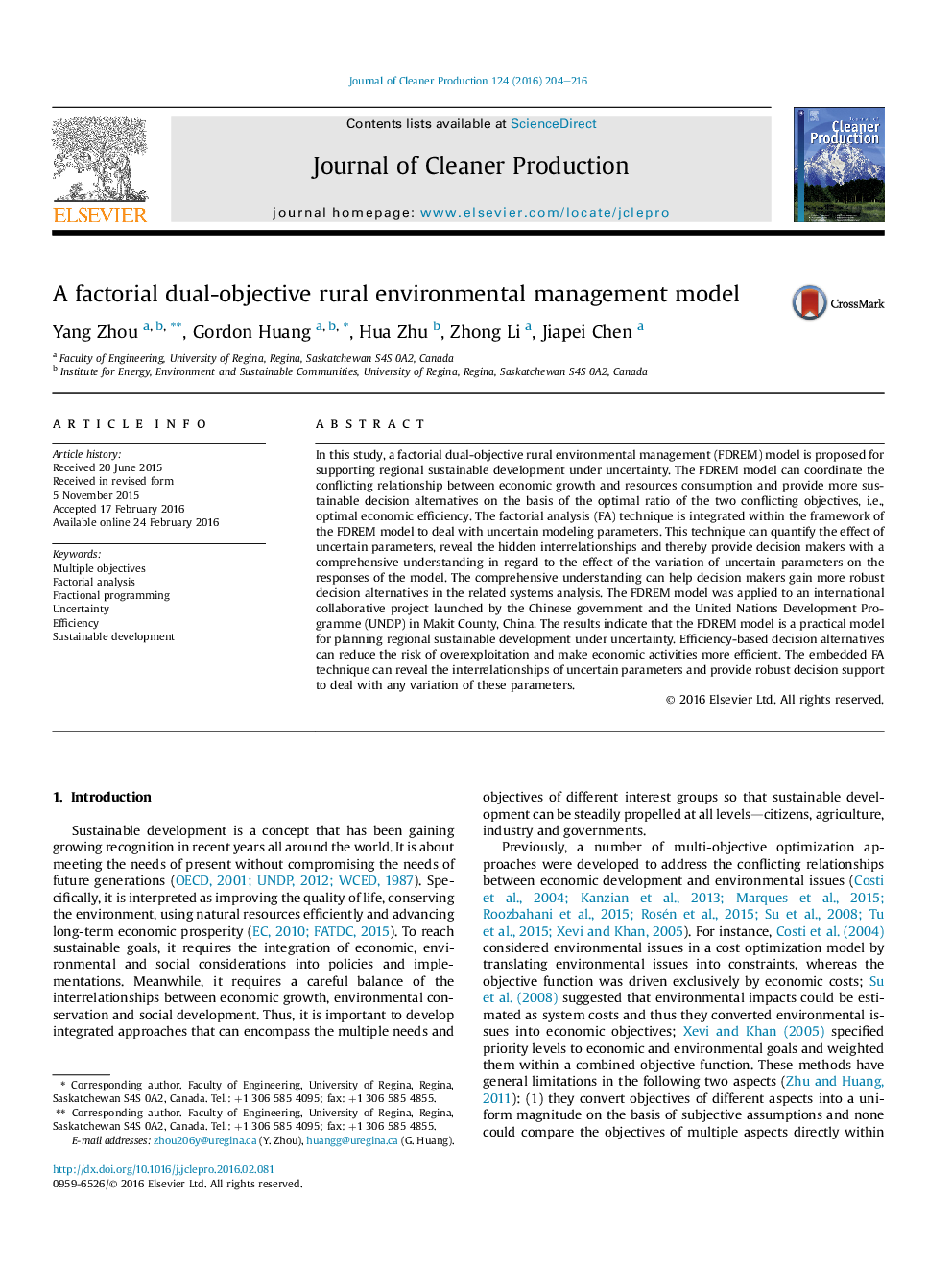| Article ID | Journal | Published Year | Pages | File Type |
|---|---|---|---|---|
| 8102310 | Journal of Cleaner Production | 2016 | 13 Pages |
Abstract
In this study, a factorial dual-objective rural environmental management (FDREM) model is proposed for supporting regional sustainable development under uncertainty. The FDREM model can coordinate the conflicting relationship between economic growth and resources consumption and provide more sustainable decision alternatives on the basis of the optimal ratio of the two conflicting objectives, i.e., optimal economic efficiency. The factorial analysis (FA) technique is integrated within the framework of the FDREM model to deal with uncertain modeling parameters. This technique can quantify the effect of uncertain parameters, reveal the hidden interrelationships and thereby provide decision makers with a comprehensive understanding in regard to the effect of the variation of uncertain parameters on the responses of the model. The comprehensive understanding can help decision makers gain more robust decision alternatives in the related systems analysis. The FDREM model was applied to an international collaborative project launched by the Chinese government and the United Nations Development Programme (UNDP) in Makit County, China. The results indicate that the FDREM model is a practical model for planning regional sustainable development under uncertainty. Efficiency-based decision alternatives can reduce the risk of overexploitation and make economic activities more efficient. The embedded FA technique can reveal the interrelationships of uncertain parameters and provide robust decision support to deal with any variation of these parameters.
Keywords
Related Topics
Physical Sciences and Engineering
Energy
Renewable Energy, Sustainability and the Environment
Authors
Yang Zhou, Gordon Huang, Hua Zhu, Zhong Li, Jiapei Chen,
